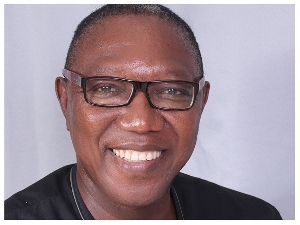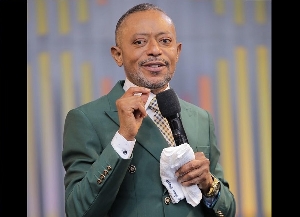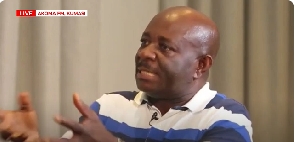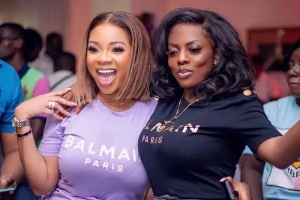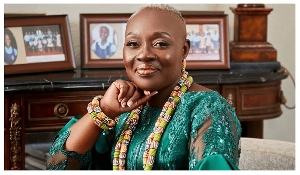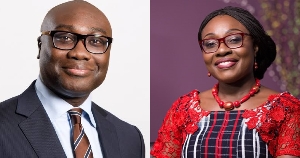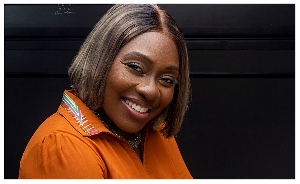 Jane Naana Opoku-Agyemang, running mate for the NDC flagbearer, John Dramani Mahama
Jane Naana Opoku-Agyemang, running mate for the NDC flagbearer, John Dramani Mahama
Ghanaians are about to go to the polls to translate their political and economic analysis of the last four years into votes that will either maintain or change presidents.
The idea of the NDC opting, at long last, for a woman as the running mate of their male flagbearer is a laudable step, as it should be reckoned as a bid to eradicate the gender bias that has doggedly held sway in our political dispensations for so long.
The importance of the clamour for women to be offered more opportunities to assert their worth, especially in direct governance can hardly be overstated. They have to be given the chance to go where there has hitherto been no path for them so that they can leave a trail, especially in Africa.
Admittedly, however, a significant amount of progress has been chalked up in recent years in the exercise of narrowing what had seemed to be an unbridgeable gender gap. This is particularly the case for some developed countries, where something more than just the basic tenets and principles of democracy is respected and unambiguously put into practice. There, modern times have witnessed women perching with great determination and drive at the helm of political affairs.
Unfortunately, the same cannot be said for a developing country like ours, which is a fledgeling entity, as it were, when it comes to embracing the fact that women are more than qualified to play very significant roles, particularly in direct decision-making processes towards nation-building. Women have been seen to make not inconsiderable degrees of impact in the field of business and entrepreneurship, where they have proved to be excellent CEOs, bank managers, PROs, etc. In medicine, they have shown great expertise as physicians, surgeons, etc. In education, they leave their mark as high-profile academicians: we have professors with a great breadth of knowledge. Not to mention politics, where we have seen them make their voice heard unequivocally. Mention the field, and they are there! Yet they are constantly coming up against the glass ceiling in political leadership.
It seems that the notions and practices that prevail in some rural contexts have been sad, say, extrapolated to the 21st-century political order of the elite governing bodies in the metropolis. In some rural settings, certain souls are still conditioned by the old-fashioned and deep-seated mindset that a woman's place is in the home and it seems to be a herculean endeavour when they have to be pulled out of this misguided notion. In other words, some entrenched patriarchal family structures still mean that a great deal of sustained effort is required to help women graduate from submissive roles that call for doing the men’s bidding (which includes devoting themselves to childbirth) to pivotal roles, ones in which they too can stand up and be counted.
It has to be emphasised, though, that in other settings that are not so rural, some women happen to find themselves in situations where they are compelled to take care of their children single-handedly. Of course, on no account are such roles to be dismissed as insignificant or secondary. This is because childcare, upbringing, or if you will, parenting in general if executed properly, goes a long way to underscore the discipline, resoluteness, uprightness, selflessness, the spirit of patriotism, etc. that (should) characterise any citizen in whose hands the destiny of a whole country is entrusted for leadership and governance.
To this end, it is hoped that a complete end
is brought to the crippling discriminatory practices that linger on in certain male-dominated quarters, mostly in the domain of African politics, for those practices only militate against women's capacity to ever hold positions beyond minister and deputy minister.
After this audacious and risky digression into accomplished sociologists' stronghold, I will now zero in on NDC's president hopeful's female running mate, Prof Naana Jane Opoku-Agyemang.
One would expect that her being a woman would stand her in good stead among the sisterhood at the ballot box. That is to say that, like-minded, or better still, "like-gendered" people, would be excited to see one of their own catapulted to the spotlight with this highly sensitive appointment and she would subsequently attract generous election-winning support and encouragement from her fellow women.
Yet a certain amount of caution has to be exercised, if I am allowed to base this, albeit solely and exclusively, on a confession I was once privy to through a politically conscious female friend of mine. She is also a stickler for social propriety, hence her utter astonishment at hearing some female friends of hers admitting to her without any qualms that out of envy or jealousy they do not vote for women who stand in for high political positions. By her account, these friends in her circle also made it clear that they find male bosses better to relate to than their female counterparts!
Well, it takes all sorts, they say, and given that we are human, there are bound to be pockets of resentment within factions of the society against the backdrop of a woman being elevated to a position that is only reserved for a privileged few, especially when the gender or l daresay, the tribal card is overtly at play.
Nevertheless, there is no room for generalising this cynical sentiment. It is Prof Naana Jane Opoku-Agyemang's fervent hope and prayer that in the forthcoming elections her fellow women, irrespective of which side of the political divide they situate themselves, will come out in their numbers to endorse her by way of stamping their thumbs for her at the polling stations. In this way, they will afford her the opportunity to show her pace as a force for positive change, and in the process raise the feminine banner high.
Who knows? She might be the wind of change to veer Ghana's political ship clear of the "troubled waters" of the one-gender positions of power.
In short, it is about time "we" exercised our power with a view to bringing to a halt the gender power imbalance that seems to have hitherto been culturally determined in our country.
Long Live Ghana, long live our women.
- Our country is dirtier than when there was no Ministry of Sanitation - John Mahama
- Understanding Mahama’s Ideology: A new paradigm shift for a successful Ghana: Part 2
- Your 20% 'Akonfem mathematics' can’t be equated to my 70% digitalization efforts - Bawumia jabs Mahama
- 70% vs 20% 'Akonfem mathematics': Bawumia jabs Mahama over who will win hearts of electorates
- Copycat NPP now scrambling to appoint a female running mate – Joyce Bawah Mogtari
- Read all related articles

